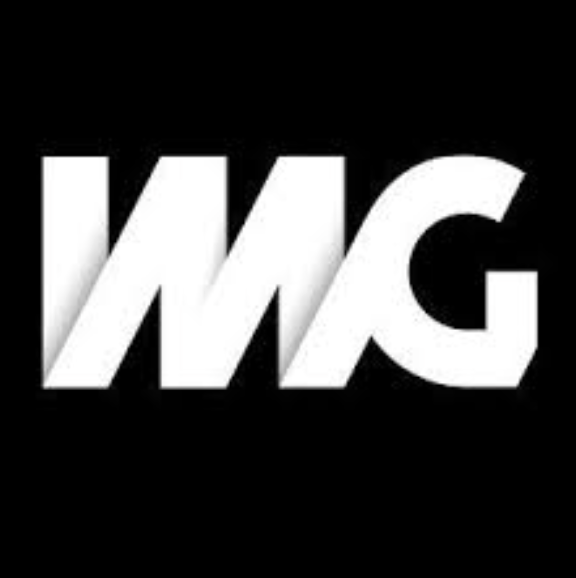Which is the absolute worst promotion in U.S. history? I love the business so much, I’d really prefer not to make that call. Luckily for me, when it comes to the United Kingdom, that call has already been made: all England agrees that Hoover’s Free Travel Offer was the worst promotion in British history.
The Hoover vacuum cleaner was once a powerful brand in the U.K. — its name became a verb for tidying about the house (“I’ll just Hoover a bit before tea, dear.”). Bought by the Maytag Co. in 1989, Hoover was a major factor in the new owner’s British presence.

By summer 1992, however, Maytag-U.K. suffered from a backlog of vacuum cleaners and washing machines. To jumpstart sales and turn around a £10 million deficit, the company launched a promotion that seemed too good to be true: By spending just £100 on any Hoover or Maytag product, consumers got two free return flights from key cities in Europe.
The exchange rate at that time was US $1.98 per British pound. Don’t think too long: there’s no way this promotion could pay out, since two return trip airfares from the continent to Britain cost more than £100 pounds (US$198).
The promotion was valid on all Hoover and Maytag products, but it has always been regarded as a vacuum promotion for the way it was advertised and the low cost of entry via a vacuum purchase — the vacuums cost half the price of the airfare. Hoover had gambled that this promotion would pay out for three reasons:
-
Consumers would buy, but fail to take advantage of the offer because of the red tape involved in redemption.
-
Dealer sales reps would successfully upsell consumers with accessories or more expensive models.
-
Travel agency reps would sell additional travel add-ons to those hardy souls who actually tried to redeem their free-ticket offers.
“Once the offer is out there, you have no control…right or wrong, corporations are seen as fair game in these types of circumstances. It is ‘let the seller beware,’” notes Iain Fergsuon, executive VP of Havas SA.
Consumers are much, much smarter than they’re generally given credit for. Knowing a bargain when they saw one, British consumers began snapping up Hoover vacuums at a dizzying pace. Sales exploded.
“Hoover’s flagship Scottish plant in Cambuslang was left working all-out to meet soaring demand for its products. It even took on an extra 75 workers,” recalls David Leask of Scotland’s Evening Times.
Knowing a huge idea when they saw it, Hoover management upped the ante with a follow-up promotion that offered two free return tickets from the U.S. TV ads for this campaign reminded holders of the first offer, and trumpeted the new offer under the tag “Two Return Seats: Unbelievable.”
“Unbelievable” doesn’t even begin to describe what happened next.
“Slippage is inversely tied to offer value — the higher the value, the lower the slippage,” cautions my old business partner Tom Wessling when training promotion neophytes. The slippage factor on a $1 detergent rebate is huge because it’s only $1. Slippage on a $300 computer rebate is minimal, because it’s a tremendously high value. Who’s going to forget someone owes them $300?
You’re thinking yeah, yeah, this is common sense — but somehow it escaped everyone at Hoover UK.
The second promotion not only created a new wave of demand, it also served to flush out every poor sod who’d forgotten to redeem the first offer. Hoover’s travel agents were swamped with consumers who were livid over the delays in redeeming their free airfare vouchers. Far from wanting to hear about travel upgrades, these consumers wanted their tickets and they wanted them now! When it became apparent that they weren’t getting served, disgruntled Brits launched a tidal wave of bad publicity for the offers — which only served to drive sales and offer fulfillment higher still.
The BBC’s Watchdog, a consumer program that recently celebrated its 25th anniversary, says its handling of the Hoover promotion was its biggest story of the quarter century.
“By early 1993, hundreds had written Watchdog saying that they hadn’t had [responses],” The Web retrospective says. “A researcher went undercover with the company processing the applications and was told that it was deliberate policy to stop people from getting them. The story cost Hoover’s board its jobs and the company an estimated £40 million.”
Wait, it gets worse! Great Britain’s sovereigns and their family members have granted royal warrants to firms and brands since the reign of Henry VIII. Companies holding a warrant may use the legend, “By Appointment.” They may also display the motto on products, stationery, ads and other printed material. You can even put the logo on your trucks. It’s a very big endorsement, and best of all it’s free — if you’re good enough to qualify. Hoover experienced the uniquely British indignity of having its royal warrant revoked by the Queen as a result of this promotion.
While some 220,000 did end up flying free via the Hoover-Maytag campaign, fallout went on for years, costing an estimated £50 million (US $99 million). Not only did everyone involved lose their jobs, Maytag ultimately cut its losses in the U.K. and sold out to Italian appliance firm Candy.
“People queued for vacuum cleaners they didn’t need and the small ads columns of The Evening Times and other papers were full of unwanted Hoovers still in their boxes,” Leask says. “Couples getting married even warned they did not want Hoovers as presents. At least electrical retailers were happy. They estimate £9 million was added to their profits as sales soared.”
Rod Taylor is senior VP of promotion for CoActive marketing, Cincinatti, OH. He can be reached at rtaylor@getcoactive.com.
The Housewife’s Friend
The modern vacuum cleaner was invented in 1907 by Murray Spangler, an asthmatic janitor from Canton, OH. Dust aggravated his illness, so Spangler rigged a tin soap box with a fan and a pillow case, plus a broom stick as a handle, to create the “suction sweeper.” Susan Hoover, a family friend, tested it in her home. Her praises of the new invention’s abilities convinced her husband, W.H. “Boss” Hoover, to get involved. He bought the patent in 1908 and brought Spangler in as a partner.
Hoover’s launch of the new product was genius. His ads in The Saturday Evening Post offered a free test of a Hoover Suction Sweeper to anyone writing in. When a consumer responded, Hoover offered retailers in that locale the opportunity to deliver the test vacuum, keep any resulting commission, and become dealers. Hoover salesmen were used to demonstrate the new product in stores, and travel door-to-door demonstrating it in homes.
The Hoover family owned the company until 1943. Today, the Hoover brand is owned by the Maytag Co. of Newton, IA, where it’s marketed alongside Maytag and Jenn Air appliances.
— RT



